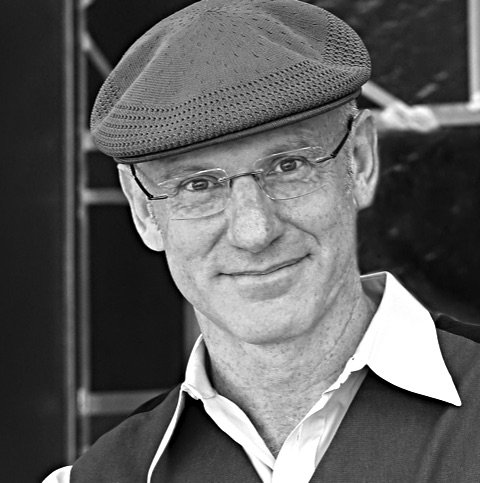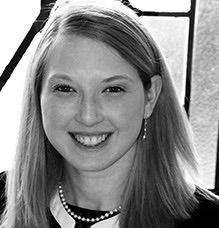 Photo from Wikimedia Commons
Photo from Wikimedia Commons PARSHA: TERUMAH, EXODUS 25:8-9
“And let them make Me a sanctuary that I may dwell among them. Exactly as I show you — the pattern of the Tabernacle and the pattern of all its furnishings — so shall you make it.”
Rabbi David Saiger
Milken Community Schools

Ron Swanson in TV’s “Parks and Recreation,” played by Nick Offerman, is a curmudgeonly parks director who is vehemently anti-government and anti-pretty much anything institutional, including religion. As a hobbyist carpenter and builder, he’s forced to admit, while attending a wedding in a church: “Say what you will about organized religion, but those [people] knew how to construct an edifice.”
Swanson and I may disagree on the value of organized religion, but we agree on the value of a well-designed edifice. However, there are edifices and then there are edifices. The Torah recognizes the allure of building something grand and beautiful. The Tower of Babel was grand and beautiful, presumably, but its purpose was to give others and/or ourselves the false impression that we are (like?) gods. It was the ultimate expression of hubris.
But some edifices, however grand and beautiful, truly allow God to dwell among us. Put differently, some edifices allow us to access the most spiritual, empathic and even humble parts of ourselves. To me, the operative words of our verse are “that [God] may dwell.” The Tabernacle isn’t the dwelling place of the human ego, it’s the dwelling place of spiritual values. The Tabernacle was the anti-Babel — an edifice constructed not to express the desires of powerful men, but an edifice that puts the ego in check and creates space for God, for the Godly parts of ourselves.
When I enter a space to pray or to reflect, be the space humble or grand, my question is: Is this a Tower of Babel, or is this a Tabernacle?
Rabbi Jocee Hudson
Temple Israel of Hollywood

One of the most profound shifts in my understanding of God has been inspired by feminist theologians, who have taught that God is not a hierarchical power judging from above, but rather an animating power radiating from within.
“Does God judge me?” I am asked versions of this question often in my work as a rabbi. And it’s a question I will admit to asking myself. “Is God angry with me? Is God punishing me?”
These are difficult questions because they unearth hard truths in our emotional landscapes: we are imperfect, life can be devastating and confusing and, in the face of uncertainty, we may find ourselves desperate for answers.
And let them make Me a sanctuary that I may dwell among them.
In response to these tough questions, I remind myself of this bit of Torah.
There is a divine spark in each of us, which links us one to the other and to our deepest selves. This divine spark, which dwells among us, within us, is not a source of judgment or punishment. This divine spark is a nurturing, connective force that has the power to bring us shalom and shleimut, peace and wholeness. When we pray or meditate or allow our minds to quiet, this is the light, the echo, that emerges.
There is much of God I cannot know. There is so much of God I can feel. The truest sanctuaries we build make space for both realities.
Salvador Litvak
AccidentalTalmudist.org

Our friend Ziporah Bank likes to say, “If you’re walking through a desert and find 10 rocks lined up in a row, you know someone did that. Nature doesn’t randomly create such rows. Likewise, a universe filled with ordered beauty, from galaxies to gladioluses, doesn’t just happen. Someone did that.”
In our verse, God has already told Moses to open the first capital campaign by inviting “every person whose heart inspires him” to donate materials for a new synagogue. Its architect is the Holy One Himself, who now shows His design to Moses.
Our verse reads, “Exactly as I show you — the pattern of the Tabernacle…” but there are no dashes in the Torah. So read it, “I show you the pattern.” This pattern is the mark of God eternally dwelling in our midst. Most people would walk by Ziporah’s row of rocks without a second thought, particularly when troubled by a business problem or worrisome relative.
If we open ourselves to the possibility of Divine purpose, however, we can eventually become like Reb Zusha of Anipoli, who would regularly collapse to the ground, overwhelmed by the stars in the night sky, and the loving Hand that placed them there.
Rabbi Nicole Guzik
Sinai Temple

We are the lens through which our children see the world.
At dinner, our three children were giggling and laughing. Assuming the kids weren’t paying attention, my husband and I discussed our health. The words “lose weight” entered the conversation. Our daughter’s head popped up and she said, “I want to lose weight, too.” She is 6 years old.
We included her in a discussion about healthy eating and living, but lingering was the shock of our 6-year-old mirroring our language and behavior. Although it was a positive talk about ways to be healthy, the lesson was clear: The younger generation forms opinions, attitudes and behaviors based on how the older generation models and performs.
If we want our daughter to love herself, then we must intentionally model ways to do just that.
The Italian commentator Umberto Cassuto elucidates, “…[W]e shall explain in detail how the very design of the Tabernacle was able to inspire the people with the confident feeling that the Lord was present in their midst.”
Meaning, the pattern of the Tabernacle was to deliberately remind the children of Israel that God was watching and God was present. The architectural design of the Tabernacle provided a model of life for the Israelites to mirror. In understanding that God was close, so came the ability to develop a core of strength and a heart of faith.
We serve as our children’s Tabernacle. Let our words and actions allow for their growth — spiritual, physical, emotional.
Our children are watching.
Rabbi Tzvi Freeman
Chabad.org

Hypercreative, infinite and original designer of innumerable worlds seeks meaningful relationship with finite, corporeal being with intent to build a home together. Heaven is nice but it’s time to get down to earth.
Blueprints, materials, real estate … everything is prepared and ready for implementation. All that’s needed is your willingness to take this forward — with passion, with love, with wisdom, with wonder — and with total dedication to invest every talent you have into making something truly awesome happen.
Together, we can make the world beautiful again. Even more beautiful than when I first made it. Way more. We will fit infinite light into finite space. We’ll reveal transcendent oneness in fine, precise detail. We’ll unveil divine beauty in everyday human life.
I’ve got the resources. You provide the human life.
Just call, wherever you are, however you are. I’ve been waiting to meet you for way too long.






















 More news and opinions than at a Shabbat dinner, right in your inbox.
More news and opinions than at a Shabbat dinner, right in your inbox.